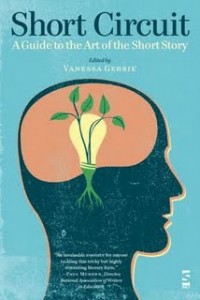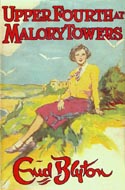 When I heard earlier this year about a forthcoming book from Salt Publishing on the short story I was so excited, not to mention a bit impatient for its publication! My copy of ‘Short Circuit: A Guide to the Art of the Short Story’ arrived last month and, honestly, the wait was well worth it. It’s absolutely chock full of advice from 24 prize-winning short fiction writers on just about every aspect of the short story. And it’s an ideal textbook for those of us on postgraduate Creative Writing courses who love – and grapple with – this challenging form.
When I heard earlier this year about a forthcoming book from Salt Publishing on the short story I was so excited, not to mention a bit impatient for its publication! My copy of ‘Short Circuit: A Guide to the Art of the Short Story’ arrived last month and, honestly, the wait was well worth it. It’s absolutely chock full of advice from 24 prize-winning short fiction writers on just about every aspect of the short story. And it’s an ideal textbook for those of us on postgraduate Creative Writing courses who love – and grapple with – this challenging form.
So I’m delighted that the editor of Short Circuit, the acclaimed Vanessa Gebbie, agreed to let me interview her as part of her Virtual Book Tour. Vanessa has won many awards for her own short stories, and her collection Words from a Glass Bubble is one of Salt’s Top 20 bestsellers. She also has a fabulously informative blog, and is a smart, warm-hearted person who’s very generous when it comes to sharing her expertise.
INTERVIEW WITH VANESSA GEBBIE
Fiona: Hi Vanessa. Thanks so much for coming! First, let’s kick off with some questions about Short Circuit.
Q1. On my postgraduate course the students have the opportunity to produce an anthology [of students’ work]. Can you tell me about your experience of putting together Short Circuit? What were the highs and lows? In what ways has this editorial role contributed to your own professional development as a writer?
Vanessa: First, congratulations on a great opportunity. The chance to plan, decide how to select – named or anonymous submissions for example – single editor final decision or committee final decision (remembering a camel was a horse designed by committee…), then to work closely with the writers on editing, and introductions, acknowledgements, designing the book, working with the printers, planning marketing, readings, distribution. (I’ll review for you on the blog). All fantastic experiences.
Secondly, commiserations for the headaches to come. How to reject the work of friends? How to disappoint people. How to react to the deadlines being broken by factors outside your control…etc etc.
Short Circuit had some similarities, some obvious differences. I approached the writers and commissioned essays. I was lucky, only one of those writers turned me down. I wanted each writer to ‘talk’ to the reader in their own way – therefore there was no standardising of style at all. My input was easy – wait until I saw what I had, and fill the gap. Sort a few writing exercises.
The lowest point was the final editing process. I had not realised to what extent there was going to be a need to check and doublecheck and treblecheck formatting of the whole book as an entity, once all 24 essays had been typeset by Salt, to standardise that (or it would have looked a dog’s dinner!). That is a non-creative occupation, and was unsatisfying on many levels. Aaagh. All those lists of stories and reference books… I had to either re-check every single one for publisher, dates, anthology titles… or in many cases find all that out as well. Hours, and hours!
But – when it was done, that was a real high. Seeing the book – amazing. Actually, seeing the cover was the first real amazement – how clever Chris at Salt is – tuning in to the work so well to find an image that sings the contents.
Highs during the process were the great conversations I had with both Tobias Hill and with Clare Wigfall. Hours on the phone, scribbling notes. And then, as the essays arrived in my inbox, reading for the first time, reading them as a writer picking up this book – and being blown sideways each time.
Q2. One of the features of Short Circuit is that each of the 24 contributors provides a list of their favourite short stories. I noticed that one of your choices was from Petina Gappah’s An Elegy for Easterly collection, which has just won the Guardian First Book award. (You clearly have good instincts!) What, for you, are the stand-out qualities of her story, ‘Midnight at the Hotel California’?
V: It is hard to make a list of favourite stories! There are so many – ask me tomorrow and they’d be different to today. But Gappah’s work struck me as so good, when I first met it. (We worked together online for a short while, pulling together the One World Anthology). I’m delighted to have picked a winner!
For me, a great story is not only well written, engaging, superbly crafted. But it has to give me something that feeds me as a person. And her work does all that. What do I know about the world of Mugabe’s Zimbabwe? Only what I am fed by the media – and we all know how skewed that is in the UK. I enjoy the way she does not do the obvious. Each story is surprising in some way.
I loved the title of that story. It is a perfect illustration of a title that jangles and resonates and begins to ‘lead me’ before I even start reading.
I love the flashes of humour. And the way those twist about so that once you have laughed, you realise that you are laughing at something fundamentally unfunny – it makes you ‘see’ differently, understand a little about how Zimbabwe has become an unknown for the majority of us in our comfy sitting rooms, an unknown we think we know, but we don’t.
It is a layered story – interesting, clever, beautifully written, and funny. And it makes you think…
Q3. Alison Macleod’s essay ‘Writing and Risk-taking’ resonated strongly with me. You seem to me to be a bold writer, Vanessa! I wonder though, have you ever shied away from writing about particular issues, topics, or characters for fear of other people’s judgements (especially family members, friends)?
V: I will never forget her reading from that chapter at the ‘official’ launch of the book, at the National Association of Writers in Education annual conference, a few weeks ago. She read the section of her chapter beginning with the bathtub…(!). If there is any single piece in the book that encapsulates what makes Short Circuit utterly different, it is those extraordinary paragraphs.
It was risky for Alison to write those, really. She is a professor, after all, and it doesn’t chime with one’s image of dry academia, does it (excuse the bathtime pun there!)? But she was illustrating the need to go somewhere ‘unsafe’ in your writing if you want it to engage, resonate. To take risks if you want to take the reader along, holding their breath a wee bit. And she was illustrating it exactly. Perfectly, in her essay.
Am I a bold writer? Thank you! I’d hate to be described as tame and sugary.
Your question is, have I ever shied away from writing about something, an issue, topic, character – for fear of the judgements of others. And you specify family or friends. I’m lucky – my husband does not read fiction. His reactions to mine are therefore, on one level, meaningless. And I would never give him my work to see before it had been published.
I think (I’ll qualify that in a minute) that the answer is no. I ‘think’ I write what I write because I just do – and if the reader doesn’t like it, they don’t have to go on reading.
A lovely example is ‘Irrigation’ – my story told by Shelley, a young woman in a high-rise block, while she is having a colonic irrigation. The story is ‘about’ love, how we have no control over who we love. And it’s about memory, and loss, and how we try to get rid of uncomfortable bad memories…and I don’t write many sex scenes, but there is a graphic scene described by her at one point. And it just happens to be anal sex. Rather nasty, that scene, unpleasant for her, and I was really ‘feeling’ for her as I wrote it.
The whole story could be a bit off-putting if you are a bit squeamish anyway – what with the colonic irrigation going on throughout. And that scene adds something else.
Three things to say, really. First, it was picked as one of the best stories in the book by a very good writer, who also picked the collection as one of her book choices of 2008 –(thanks, Nuala ni Chonchuir). Second, my son tells me some Year 10s have read it at his school and their parents didn’t like it. (He finds it excruciating that his Mum writes that!) Third, I gave a reading of ‘Irrigation’ in London, in a bookshop. A woman in the front row coughed loudly, pulled a book off the shelf nearest her, and proceeded to read it instead of listening, right through the story, rustling the pages. (Didn’t bother me – it was her right not to like it.)
I think I’m saying this – You have no control over a reader’s reaction. If you worried how people were going to react to everything you wrote, you’d never write a thing.
Q4. In your own essay about short story competitions you say on p.228 that you have a ritual of apologising to the story that failed to get placed and then you read through the rejected work, see what needs to be reworked and send it out again. Is this persistent mindset a factor in keeping faith in yourself as a writer? Do you have other ways to stay positive in the face of rejection?
V: It’s called bloodymindedness, stubbornness. Knowing I could do it well if I tried, and didn’t do it as well as I could. And NOT giving up after a couple of knock backs. If you are going to let failure get you down, you’re in the wrong game. You carry on and get better! Otherwise, nope, you’re right. You aren’t a writer. You are playing at it, and are really a bank clerk. Or a roadsweeper. A nurse. Or a policeman. Anything – except a writer.
Writing comps are not a precise science, far from it, but there are ways to maximise your chances to get noticed among a pile of a few hundred pieces. And the most obvious is to write very very well. To create a story that makes the reader forget they are reading. (I go on a bit about that, sorry -) That’s just craft – if they are reading properly. Not magic. And you can get better at craft. That’s what Short Circuit is all about. But also, it’s about learning to ‘see’ as a writer. See the potential in things. Adam Marek’s chapter… on originality. Did you like that??!
Q5. I laughed at one of Paul Magrs’ observations on p.205, ‘Adverbs can be great. Mostly they’re shit.’ How far do you agree with this (and other stock advice for writers, like ‘Show Don’t Tell’)?
V: Well, Vanessa typed, noisily, her head full of thoughts whizzing whizzily round her skull. Then she felt dryly thirsty, so ran quickly down the stairs, jumping bouncily from step to step, her hair flying whispily behind her.
Darlingest, her husband wheedled, persuadingly – from the bedroom.
What, Vanessa shouted loudly, pausing momentarily on the stairs.
Hmph. I think the point is (piss-taking aside) that many poor writers use adverbs to reinforce what they’ve already said. How can you shout anything but loudly? How can you wheedle anything but persuadingly? How can thoughts whiz anything but whizzily. And to ‘pause momentarily’ is the biggest daftest cliché. If a pause is NOT momentary, you have ‘stopped’. Not paused at all. See? Take ’em out and the prose (if not the story -) is sharper. But sure, any ‘rule’ has to be questioned. Paul is setting you up to think, to challenge, to prove him wrong. But to do it intelligently, and with thought. Of course adverbs are OK, IF that is the right construct, and what you are saying can’t be said a better way. As with all words, actually!
‘Show don’t tell?’ Oh god. Was there ever a dreadful saying??? You will notice that I do not have a chapter on showing not telling. We all tell stories. That’s what we do. But we do it in a way that engages the reader, a way that entices the reader to join us in a ‘dream’. We don’t hold them at arm’s length while we batter them with facts. We link arms and walk together. Or better – we go on ahead and prepare the path – and the reader walks it, unsure of where they are going, but willingly because we make it impossible not to. However. IF we put up bright red signposts every few yards – ‘Here be emotional scene, here be guilt, here be impending divorce, here be sadness, here be temptations,’ we are taking the whole joy out of the journey. Why bother?
F: Finally, while I have you in the hot seat Vanessa, can I ask a couple of general questions about short story writing in general.
V: Of course, I’ll try to be clever…
Q6. There have been various propositions for short story categories, such as those by William Boyd. Do you find such categories helpful? Do you consciously write stories for a particular category? How easy have you found it to place your own work within a literary tradition? Does this even matter?
V: You are asking the wrong person. I just make the words, the stories, the scenes, the characters. It is for others to fit them into boxes. If I do that, if I look too closely at available boxes, I will start trying to fit the work to the box, and something would die.
On the other hand, when teaching, the categories might be useful. To open the eyes of the non-believer to the possibilities, perhaps! And when playing. Stretching. Trying new things. ‘Oh – I could do that!!!’ but I will never be a commercial writer, I don’t think – no one will give me a three book deal for a series, because I couldn’t write to order. Bother! The money would be great…
Q7. Beginner writers may consciously – or subconsciously – mimic the voice of their heroes, like Chekhov, Carver or Proulx, for example. What are the dangers in this and could you suggest an exercise to help writers explore and discover their own narrative voice?
V: Yes – mimicking is so easy to do. But in the end, that’s not good. Your work has to be based on firmer ground than that. Let voices feed you, by all means, but find your own voice and style. Or you’ll only get so far… or you’ll be writing fan fiction for the rest of your life.
On the other hand, I don’t think you should get too worried about letting strong voices inform what you do yourself. So long as that’s all it, is, informing, not becoming!
I think quite honestly, the only way to find you own voice, is exactly the same way you lean to speak. By taking it slowly, and practicing. Making mistakes. Reading as much as you can, and writing constantly. Someone came up with some clever number of words the beginner writer has to write in order to get anywhere near Ok… millions! I don’t know about that, I do know that you get closer to your own way of doing things the more you actually DO it…!
F: Thank you Vanessa. It’s been great to have you on the blog. Hearing your thoughts has been a real inspiration. Good luck with the rest of the Short Circuit Blog Tour!
All comments welcome.
Fiona Joseph




